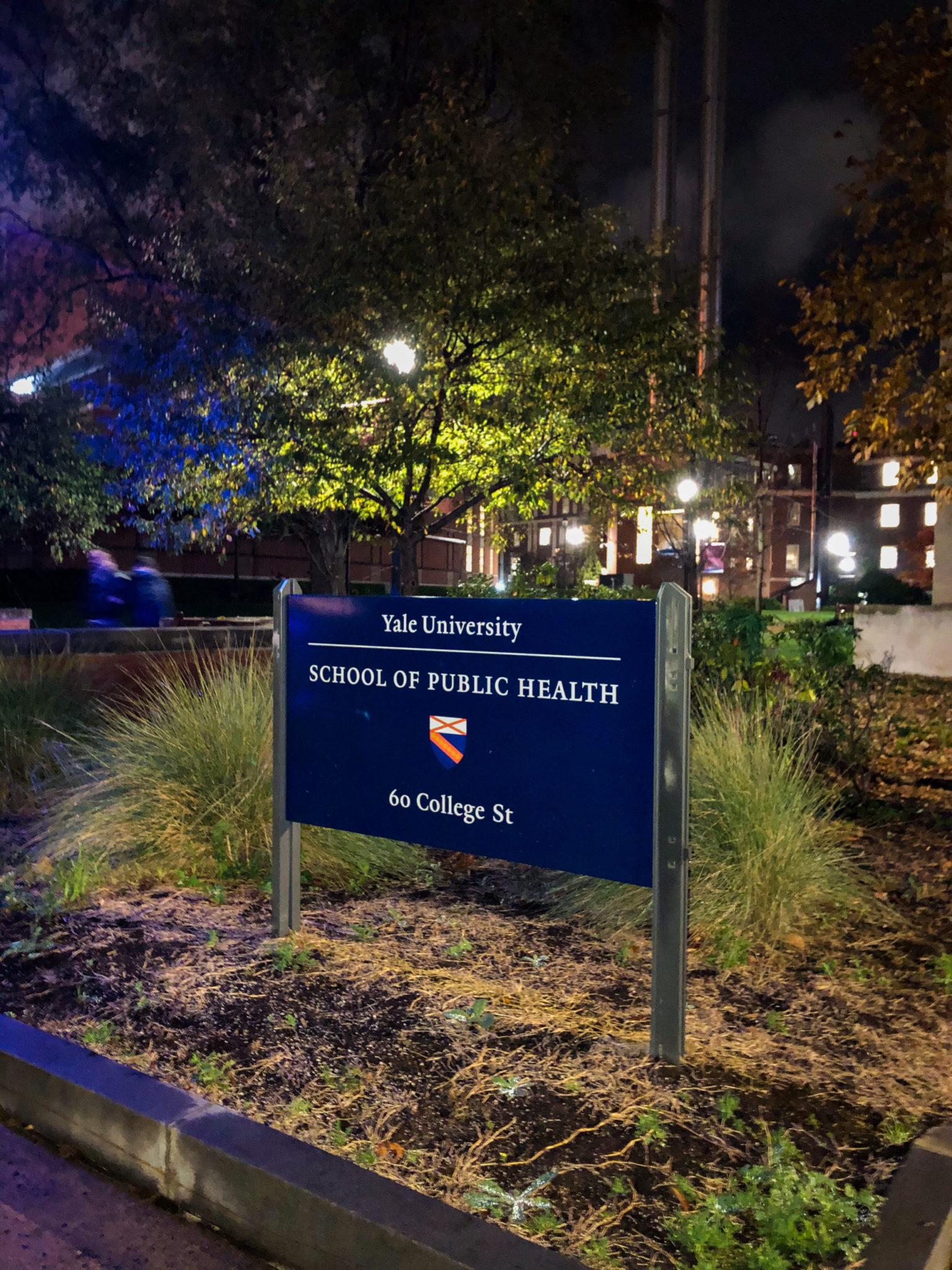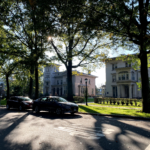IRIS, YSPH host community discussion on climate-induced migration
The talk focused on the serious impacts of climate change on forced displacement on an international, national and local scale.

Jessie Cheung, Staff Photographer
Yale faculty and students participated in a community conversation on April 29 to discuss the intersection of climate change and immigration.
Integrated Refugee & Immigrant Services, or IRIS, which is a refugee resettlement agency that provides services to people who have recently immigrated to New Haven, hosted the discussion. The event was moderated by Kaveh Khoshnood SPH ’95, professor at the Yale School of Public Health. Among the panelists were experts who spoke about the effect of climate change on immigration at the international, national and local levels. They discussed how extreme weather and rising sea levels have forcefully displaced people across the globe, creating a surge in immigration.
“We very strategically chose our speakers,” said Tabitha Sookdeo ENV ’25, a development manager at IRIS who coordinated the event. “We wanted to look at the different scales of the issue … because it is not only happening on an international scale where people are being displaced by climate borders, but it is also happening internally, within the United States.”
The first panelist to speak at the event was Andrew Harper, climate action special advisor to the United Nations High Commissioner for Refugees. He is responsible for providing guidance and expertise to the UNHCR’s response to climate change.
Harper and his team are trying to gain a better understanding of why forced displacement occurs so that they can work with others to address its root causes. Regions across the globe — from the Indian subcontinent to West Africa to the Dry Corridor in Central America, among others — are experiencing such forced displacement at increasing rates.
“Forced displacement was [once] a peripheral issue,” Harper said. “I would now say it is really front and center, because you are starting to hear these enormous numbers of people that may be on the move because of issues which may be directly or indirectly related to climate change.”
Issues that are directly related to climate change can be seen in Central American countries such as Honduras, according to another speaker at the event, National Immigration Forum Executive Director Ali Noorani.
According to Noorani, 40 percent of the Honduran labor force works in the coffee production sector. When the country faced years of drought in a competitive global coffee market, many people fled the country and sought protection as economic refugees in the United States, Noorani explained.
Like Harper, Noorani, who has worked with Syrian refugees to resettle in the United States after fleeing their country’s civil war, also discussed indirect issues of forced displacement. According to Noorani, before the war broke out, Syria had experienced a massive drought that forced many farmers to move into Syrian cities. That migration led to conflicts that ultimately contributed to the civil war that has embroiled the country, Noorani said.
“The war in Syria to a large degree was ignited by climate change,” Noorani said.
The discussion then turned to the impact of climate-induced immigration on New Haven.
Bruni Pizarro, executive director at Junta, New Haven’s oldest Latinx community-based nonprofit, spoke of her own experiences as a member of the Latinx community who has been intrigued by New Haven’s migratory patterns since she arrived at Yale. As executive director at Junta, she is now helping people who immigrated to the United States resettle in New Haven — many of whom have fled natural disasters such as earthquakes and hurricanes.
“Junta did not market themselves as being like climate-change-induced immigration experts, but we are disaster resettlement experts,” Pizarro said. “In the COVID-19 era, which is another disaster, we are seeing that we’re actually now crises managers.”
Attendee Cameron Ramey ENV ’22 told the News that she went to the talk to learn more about climate-induced migration and to challenge her perspective on it.
Ramey said that the event allowed her to reflect on what changes can be realized now under the Biden administration and the ways in which the current laws are ill-equipped to protect climate refugees.
“There’s a lot of attention paid to climate-induced migration in the Northern Triangle and in connection with the Syrian refugee crisis,” Ramey wrote in an email to the News. “I think highlighting these stories close to home and continuing to draw the connection between climate change and intensifying storms can be very powerful and persuasive for people who are on the fence about climate change and immigration issues.”
The April 29 discussion was the second in a conversation series hosted by IRIS. Other topics in the conversation series include criminalization of immigration, the state of the Deferred Action for Childhood Arrivals program and the Afghan War. This event in particular, which lasted about an hour, had 127 registrants, including people affiliated with Yale College, the Yale School of the Environment and the Yale School of Public Health. There were 60 attendees at the Zoom event, and more people were able to view the event after it was posted on YouTube.
The recording of the event can be found on IRIS’ YouTube page.










